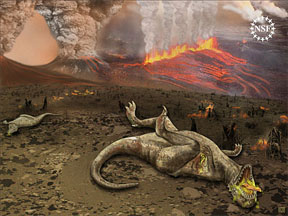Dinosaurs dying at the end of the Cretaceous Period. Volcanism is thought to be one of the main causes of the dinosaurs dying out.
Click on image for full size
Courtesy of NSF
K-T Extinction (Why Did the Dinosaurs Go Extinct?)
Why did the dinosaurs go extinct? No one knows for sure, but there
are some explanations that seem to make sense.
At the time the dinosaurs and lots of other species died out (which is sometimes called the K-T
extinction), there were lots of active volcanos on Earth. There were also some large asteroids or comets that struck the Earth around
then. Together, volcanos and asteroid impacts may have thrown dust
into the atmosphere, blocking sunlight and making it very hard for the
dinosaurs to survive.
Other things might have helped cause the dinosaurs’
extinction. We know that the atmosphere and the oceans both went
through large changes at the end of the Cretaceous Period, and the
Earth's climate probably
changed a lot, too.
Scientists around the world are still doing
research in order to test different theories
and try to learn what made the dinosaurs go extinct.
You might also be interested in:
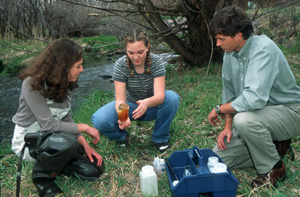
Being a scientist is fun. You get to do experiments and think of reasons why things might be happening a certain way. Being a scientist is also hard work. After a scientist comes up with a reason why something
...more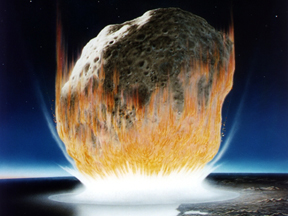
For decades, scientists have known that an enormous space rock crashed into the ocean off the Yucatan Peninsula more than 65 million years ago, resulting in the the K-Pg extinction. We know that more than
...more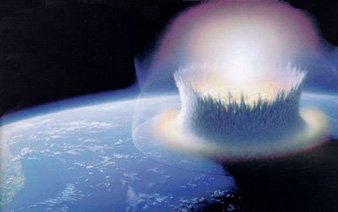
Many scientists have thought for years that the dinosaurs went extinct because an asteroid hit Earth near Mexico in a place called Chicxulub and caused big changes in the Earth’s climate. Now, scientists
...more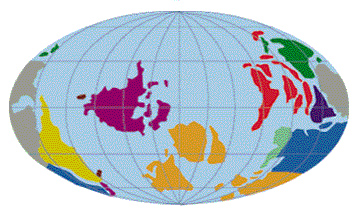
The Archean is the name of the age which began with the forming Earth. This period of Earth's history lasted a long time, 2.8 billion years! That is more than half the expected age of the Earth! And no
...more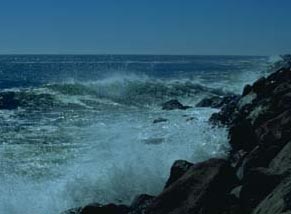
We all know that today ocean waters are very salty. There aren't many sedimentary rocks older than 2.5 billion years (see geologic time) that means that there must have been mostly igneous rocks at the
...more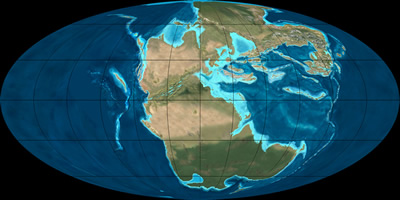
This period of time in Earth's history is a period when dinosaurs roamed the Earth. This period lasted 37 Million years. During this time, the continents we know today were combined into a giant continent
...more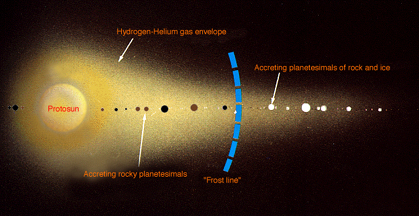
Scientists ask many questions. One of the questions they like to ask is "Where did the atmosphere come from?" As always, scientists chip in with many different, and sometimes conflicting answers. Some
...more
Once the Earth began to cool, water vapor, one of the volatiles, began to condense and form an ocean. According to the Goldilocks theory, Earth is at just the right distance from the sun for the temperature
...more


